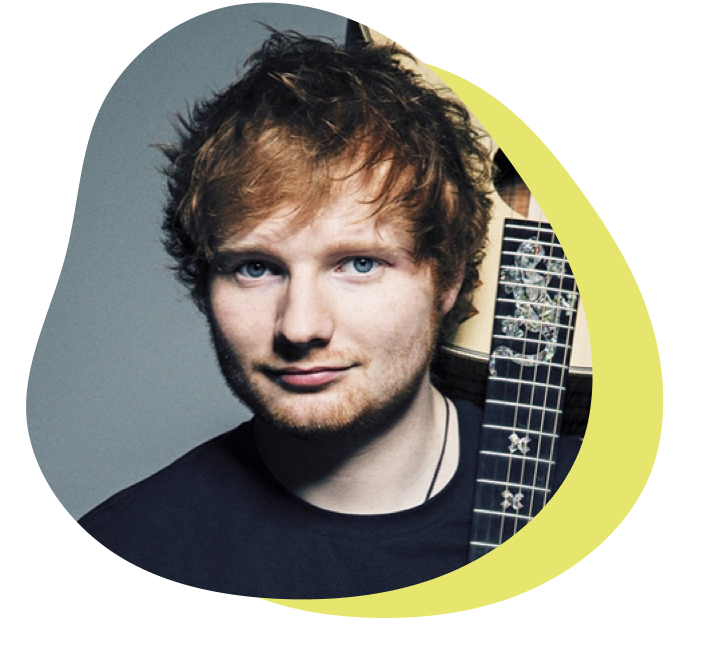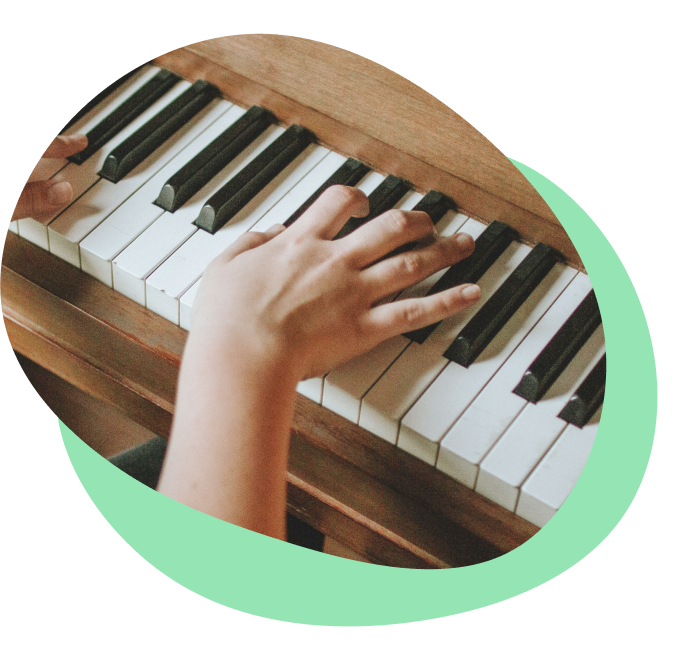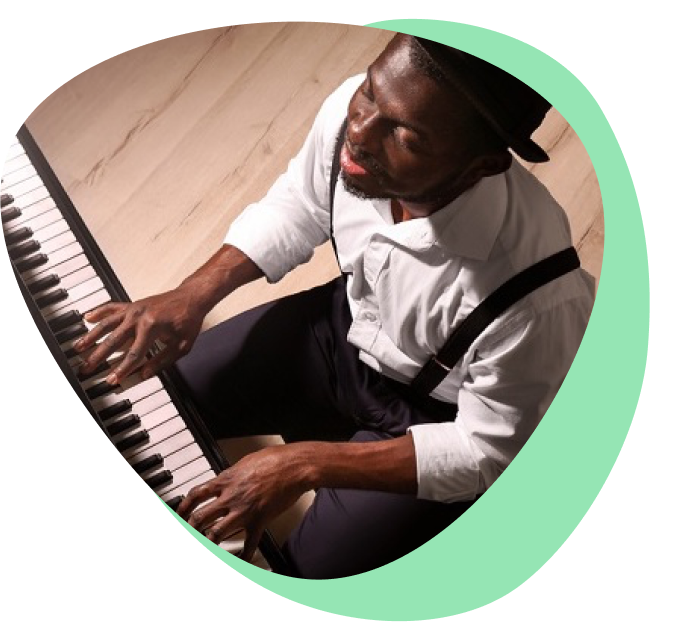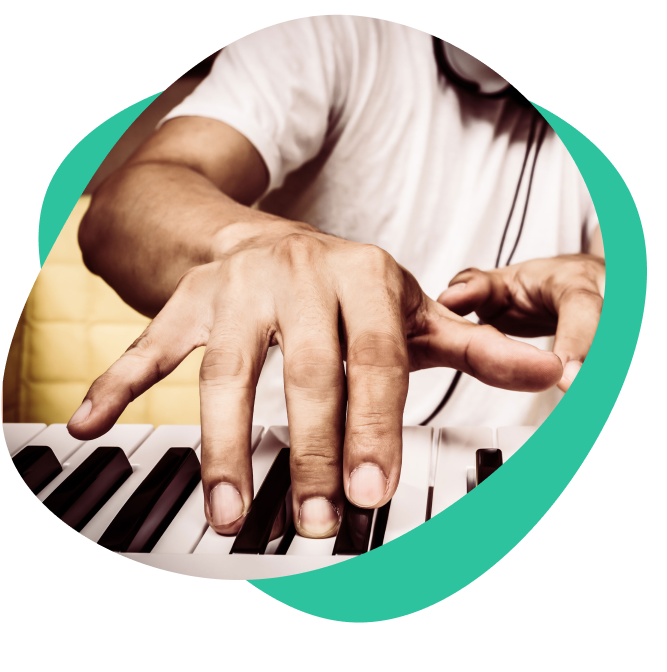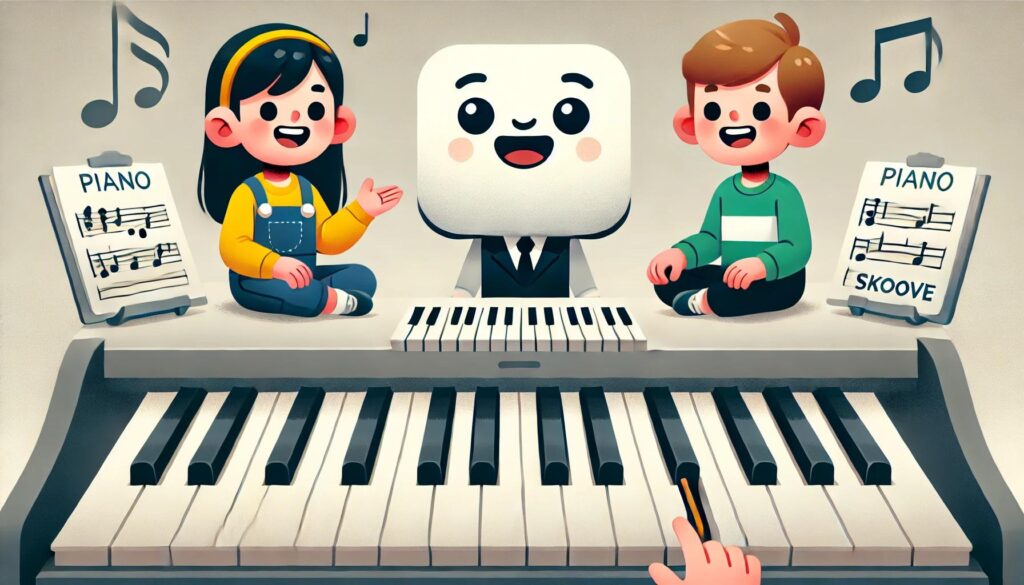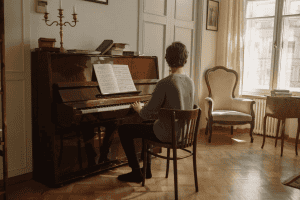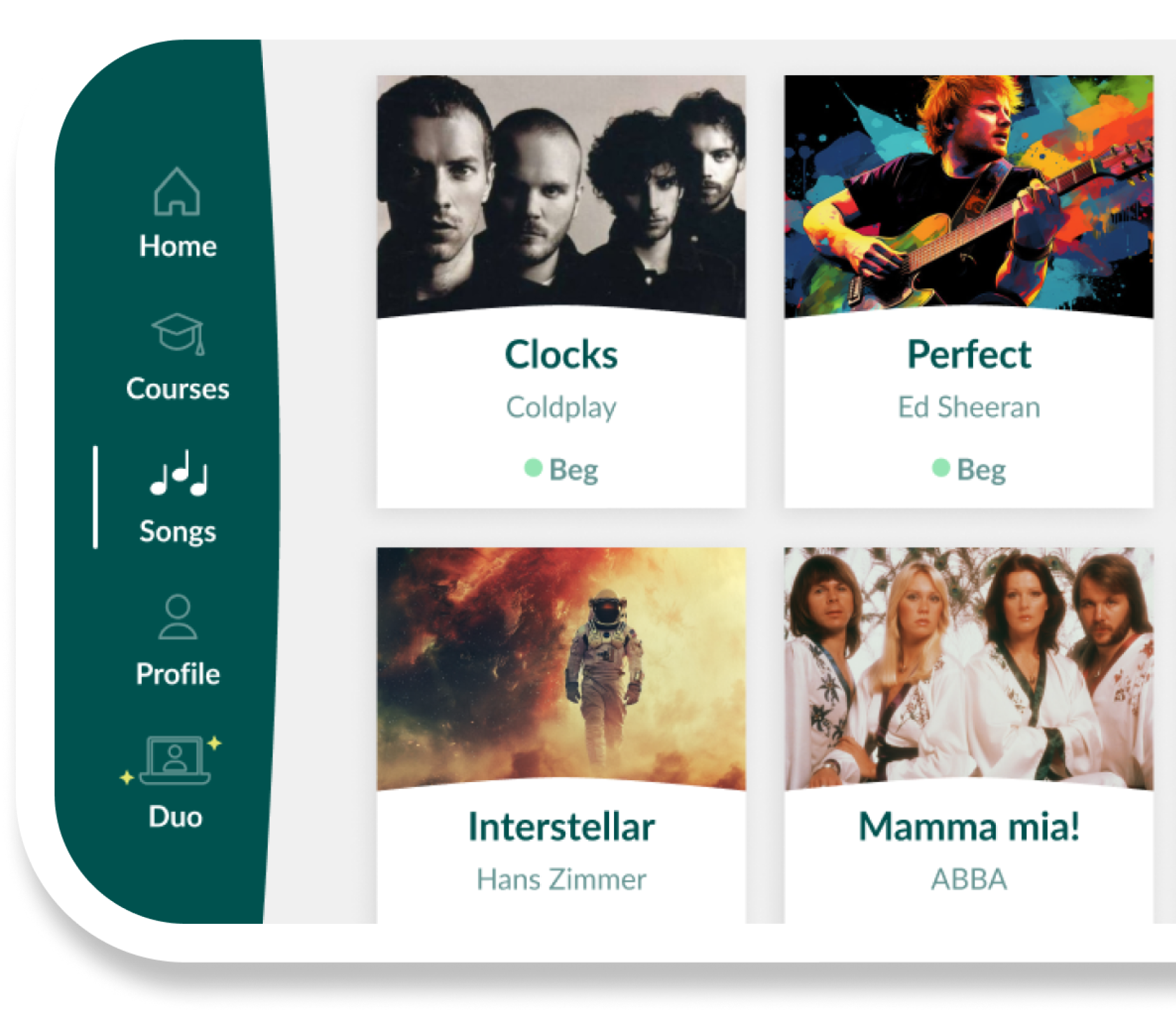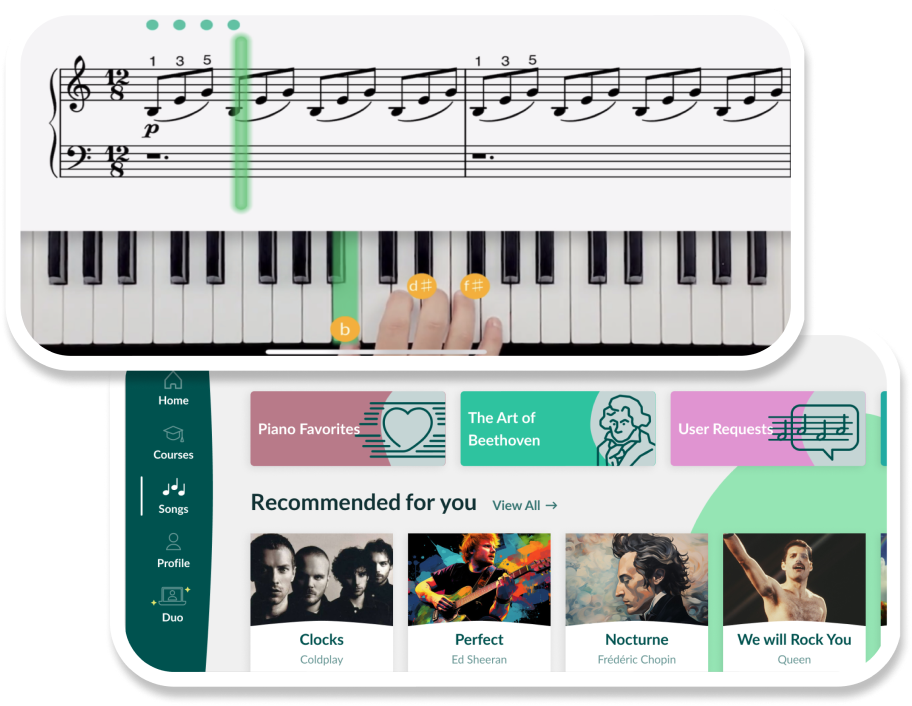Let’s face it—getting kids to stick with piano practice can sometimes feel like convincing them to eat their vegetables. One minute they’re excited about learning a new song, and the next they’re sliding off the bench like jelly. But what if you could turn practice time into play time?
That’s where piano games come in.
Whether your child is just starting out or has a few notes under their belt, games can make piano learning feel more like an adventure than a chore. From fast-paced apps that test rhythm and timing to creative offline activities that spark imagination, these games can build essential skills like coordination, note recognition, and even musical memory—all while keeping kids laughing and engaged.
In this article, we’ve rounded up 9 fun piano games for kids that blend learning with pure entertainment. Some are apps, some are hands-on activities, and one of them is a hidden gem that turns structured lessons into interactive challenges.
Ready to discover your child’s new favorite way to play piano?
- Fall in love with the music - Learn your favorite songs, at a level suitable for you.
- Enjoy interactive piano lessons - Explore courses covering music theory, technique chords & more.
- Get real-time feedback - Skoove's feedback tells you what went well and what needs practice.
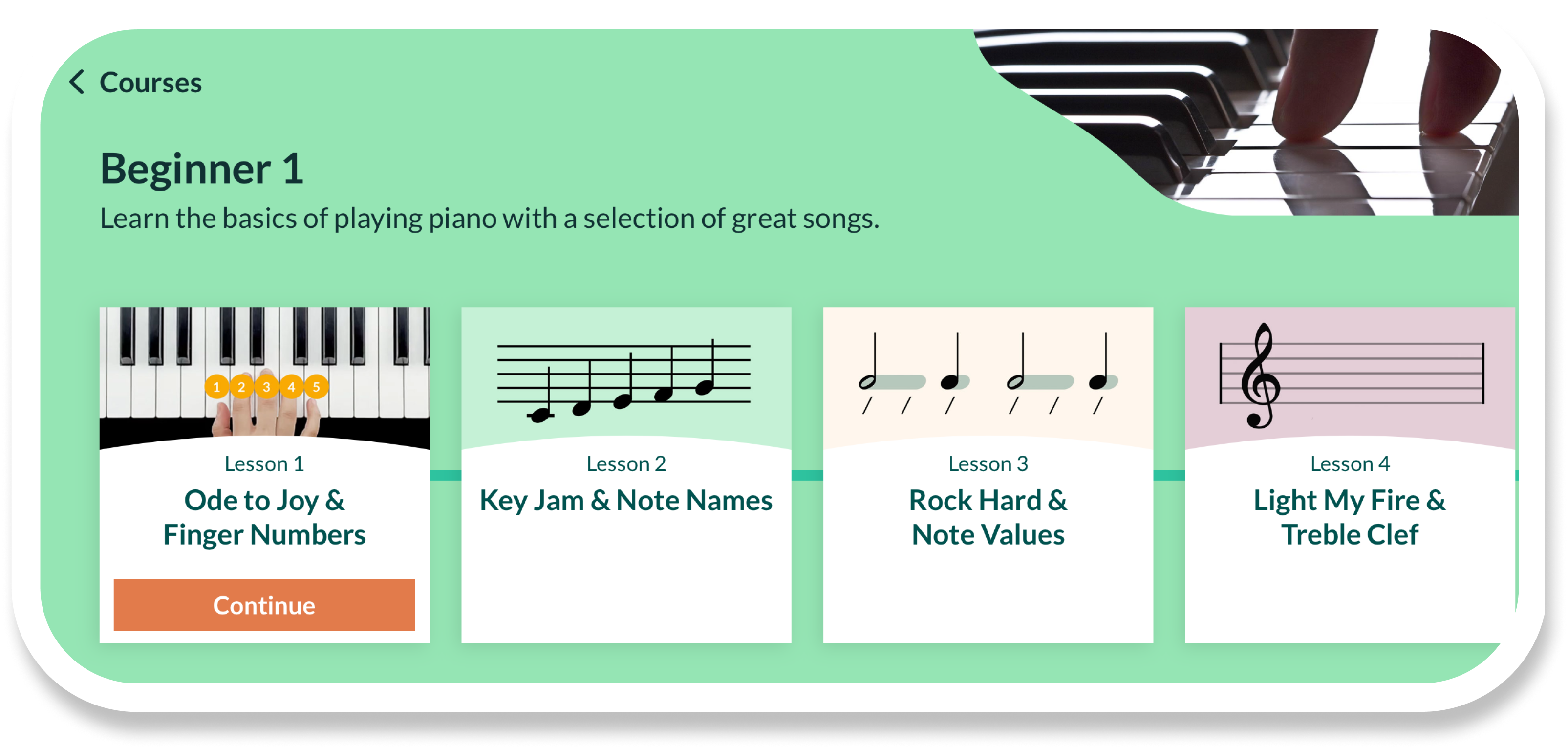
Magic tiles 3 – tap to the beat!
Platform: Android, iOS
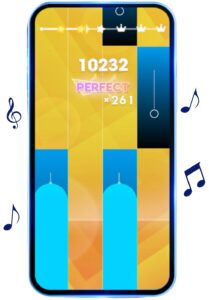
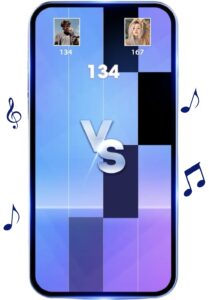
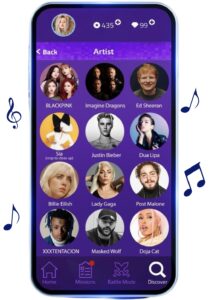
Think Guitar Hero meets a touchscreen piano. Piano Tiles 3 is a fast-paced rhythm game that challenges kids to tap black tiles as they scroll down the screen—each tap plays a piano note in sync with popular songs. It’s flashy, energetic, and super addictive in the best way.
While it’s not a traditional teaching tool, Piano Tiles 3 is brilliant for developing hand-eye coordination, rhythmic accuracy, and timing. Kids start anticipating beats, reacting quickly, and developing a strong internal sense of tempo—skills that translate well into actual piano playing.
Bonus tip: Use it as a fun warm-up before regular practice or as a reward after completing a lesson. It’s pure fun with a sneaky educational twist.
Dream piano – tap into imagination
Platform: iOS, Android
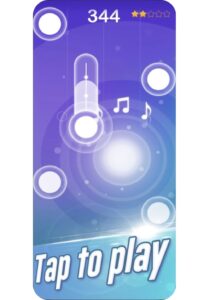
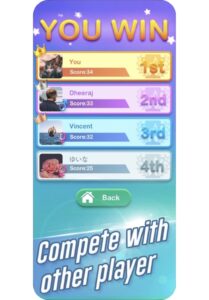
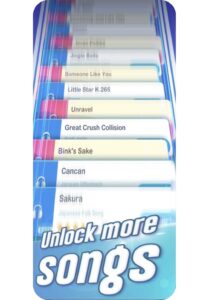
If your child loves fast fingers and beautiful melodies, Dream Piano might just become their new obsession. This app takes the rhythm-tapping format and wraps it in dreamy visuals and soothing piano tracks—think everything from classical pieces to pop hits.
The songs progress in difficulty, so there’s always a challenge to conquer. And thanks to the clean interface, kids can focus on the timing and flow of the music without distractions.
Dream Piano sharpens hand-eye coordination, tempo consistency, and note anticipation. It’s less about reading sheet music and more about internalizing rhythm and becoming confident with finger movement—especially useful for younger learners still developing motor skills.
Bonus tip: Try this one in short bursts. It’s fast, focused fun that’s ideal for practicing timing and finger control between lessons or before heading into more structured learning.
Piano – play unlimited songs
Platform: Android, iOS
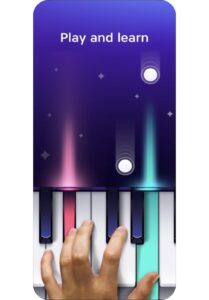
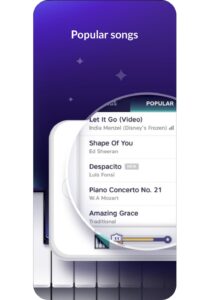
This one’s for the kids who want to jump straight into the fun part—playing popular songs! With a colorful, tappable interface, the Piano – Play Unlimited Songs app lets kids follow light-up keys and play familiar tunes like pop hits, movie themes, or classic songs.
Think of it as karaoke for the piano.
While it doesn’t focus heavily on formal instruction, the app is a great tool for improving musical memory, rhythm, and finger agility. Kids learn to follow visual cues, build confidence by playing full songs, and enjoy the instant satisfaction of hearing music come to life under their fingers.
Bonus tip: Use this app to supplement more structured lessons – it’s a great way to let kids unwind while still staying connected to music.
Music symbols sudoku – a brainy twist on a classic
Platform: Printable (offline game)
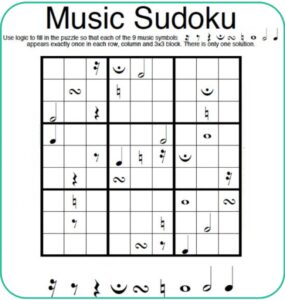
Ready to sneak some music theory into game time? Music Symbols Sudoku takes the classic logic puzzle and replaces numbers with music symbols—think treble clefs, quarter notes, rests, and more.
It’s a fresh, music-themed twist on a well-known brain teaser. Kids get to crack the code while subtly reinforcing their knowledge of music notation.
Beyond note and symbol recognition, this game promotes critical thinking, pattern recognition, and visual memory—all essential for becoming a fluent music reader. It’s especially handy for kids who enjoy puzzles and need a break from the keyboard.
Bonus tip: Print a few variations and use them as part of a “piano game day” or set them as a reward activity after practice. It’s perfect for reinforcing theory in a low-pressure, screen-free way.
Piano kids – music & songs
Platform: Android
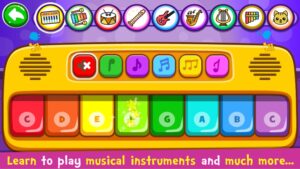
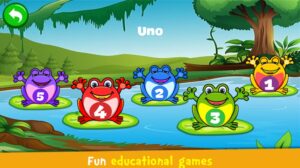
Looking for a colorful, playful introduction to music? Piano Kids is a bright and interactive app designed specifically for young children—ideal for toddlers and early learners who are just starting to explore sounds and rhythms.
The app is packed with fun features: tap-to-play piano keys, catchy children’s songs, sound effects, and mini-games with cartoon animations. It’s simple, sensory-rich, and easy for tiny fingers to navigate.
While Piano Kids isn’t a structured lesson app, it’s great for developing musical awareness, basic rhythm, and sound exploration. Kids begin associating keys with tones and rhythms while building early confidence around a piano layout.
Bonus tip: Use Piano Kids as a gateway app. Once your child gets comfortable identifying sounds and tapping keys, you can gradually introduce more structured tools to build real technique and music-reading skills.
Finger twister – a twisty workout for little hands
Platform: Offline, DIY game
Watch it in action:
If you’ve ever played Twister, you know how fun and goofy it can get. Finger Twister brings that same energy to the piano. All you need is a keyboard and a bit of creativity!
Write simple challenges on cards like “Right hand: Finger 3 on G” or “Left hand: Finger 5 on C” and have your child follow the prompts one after the other—keeping their fingers on the keys as they go.
The more they twist and stretch, the trickier and funnier it gets.
This hands-on game builds finger dexterity, keyboard awareness, and hand independence. It’s also great for helping kids remember finger numbers and note names.
Bonus tip: Play it together! You call out the instructions while they twist. Add a timer or silly reward to keep things playful and engaging.
Musical alphabet chant – sing, move, remember
Platform: Offline, movement + music
See examples:
Sometimes the best way to learn is to sing it out loud and move around. Musical Alphabet Chant is an energetic call-and-response game that helps kids memorize the musical alphabet (A–G) using rhythm, voice, and motion.
This isn’t a sit-down activity—it’s a get-up-and-dance kind of game. Kids clap, chant, and act out the notes in rhythm, making the experience totally immersive and hard to forget.
It’s all about note order, pitch awareness, and rhythmic flow. These foundational concepts become second nature when wrapped in movement and repetition. It’s a great option for kinesthetic learners who absorb more when their bodies are involved.
Bonus tip: Try switching up the chant tempo or inventing your own silly lyrics. It’s a perfect warm-up before diving into lessons or practicing scales on the piano.
Chord pong – bounce your way to chord mastery
Platform: Offline (or can be adapted as a digital quiz)
Watch it in action:
Think ping pong meets music theory. In Chord Pong, kids bounce a ball (or toss a soft object) into labeled cups or containers—each labeled with a different chord (like C, G, Am, F). Once they score, they have to play or name the chord they landed on.
It’s fast-paced, hands-on, and a little competitive. Whether they’re playing solo or with friends, it turns chord drills into a game of aim and memory.
Chord Pong strengthens chord recognition, shape memorization, and keyboard mapping. It’s an excellent bridge between theory and actual piano playing, especially when used alongside structured chord-based lessons in apps like Skoove.
Bonus tip: You can theme the game with songs they’re learning—for example, use chords from “Let It Go” or “Twinkle Twinkle” to keep things relevant and exciting.
Turn play into progress
Learning piano doesn’t have to be all scales and seriousness—especially for kids. When you bring games into the mix, you’re not just making practice more fun… you’re turning it into something they actually look forward to.
Whether it’s rhythm-tapping apps like Piano Tiles 3, creative offline games like Chord Pong, or all-in-one tools like Skoove’s Interactive Challenge, there are so many ways to keep your child smiling while they build real musical skills. The key is mixing it up: let them move, play, explore, and feel successful every step of the way.
So go ahead—try out a few of these games this week. See what sticks, celebrate small wins, and most of all, keep it fun. Because when kids enjoy the journey, they’re far more likely to stick with it—and become lifelong lovers of music.
Want a structured way to learn piano that still feels like a game?
Try Skoove’s kid-friendly piano lessons and watch their confidence grow—one fun session at a time.



